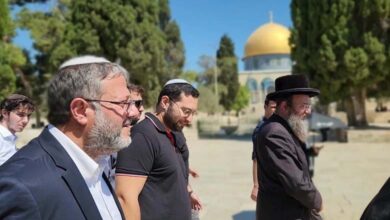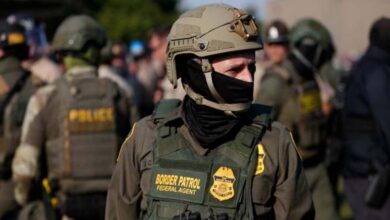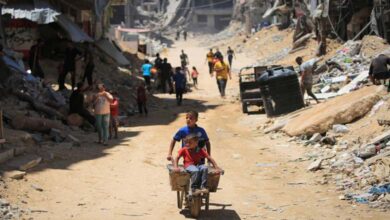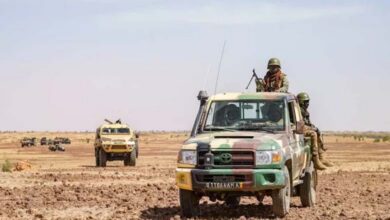Afrikaners between the Dream of Staying and Trump’s Temptations: A Struggle between Identity and Reality
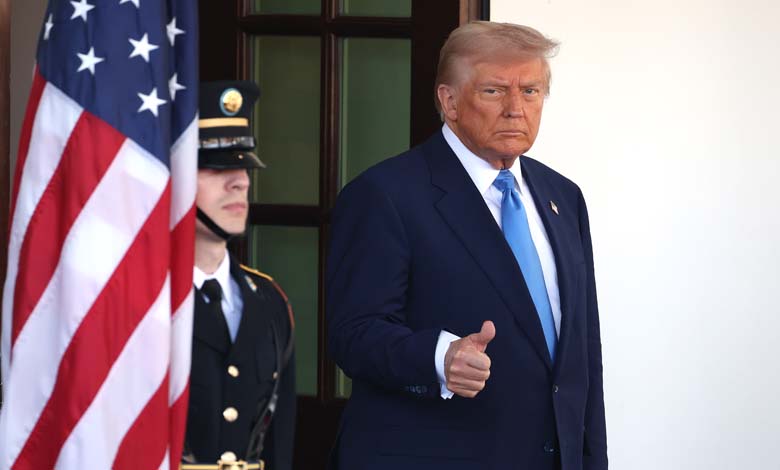
The last bastion of Afrikaner nationalism in South Africa has caught the attention of the world’s most powerful man after he adopted their cause, but this has led to tensions.
-
Musk’s Authority Raises Americans’ Concerns of a State within a State
-
The Week of Reckoning in America… Trump’s Loyalty Philosophy under Scrutiny
Despite the strong support from U.S. President Donald Trump for the Afrikaners, his exceptional offer to grant asylum in the United States to the 3,025 white residents of the enclave of Orania has not been widely welcomed.
Located in the remote Karoo desert in the Northern Cape, Orania is an area with its own currency and a series of memorials honoring Afrikaner leaders, including apartheid architect Hendrik Verwoerd, according to The Financial Times.
In an interview with the paper, Frans de Klerk, one of Orania’s leaders, said: “We can sum up Orania’s response to Donald Trump in three words: help us here.”
He added: “We are very grateful to the White House, because it’s been a long time since Afrikaners were acknowledged on the global stage… but despite our gratitude, we don’t want to leave our homeland.”
While most Afrikaners remain a relatively wealthy and privileged minority, their talk of facing “cultural threats and violence” has resonated in the White House.
It appears Trump partly drew inspiration from his close advisor Elon Musk, who was born in South Africa and has repeated what some describe as “misleading” claims of a “genocide” against Afrikaners.
-
Trump Promotes a New Nuclear Deal with Iran to Avoid Military Option
-
Billionaire, Party, and Politics… Trump’s Shadow Appears in Australia
Trump’s Offer
Since returning to the White House this January, Trump has offered asylum to Afrikaners whom he described as “fleeing racial discrimination,” slashed hundreds of millions of dollars from the U.S. AIDS relief fund, and expelled South Africa’s ambassador to Washington.
This move sparked a crisis for South African President Cyril Ramaphosa’s government, which is now struggling to safeguard economic ties with a key trading partner.
Ironically, the idea of seeking asylum in the United States is seen as a curse by many Afrikaners—especially those embracing a nationalist myth—according to the paper.
-
Trump Reinstates Cuba on ‘Terrorism Sponsors’ List… Cuban President Responds
-
The Capitol Case: Trump’s Fate if He Was Not Elected President
Afrikaners, who trace their roots back to early Dutch settlers in 1652, make up about 5% of South Africa’s population of 60 million.
Last month, Neil Diamond, president of the South African Chamber of Commerce in the U.S., said he submitted to the American embassy in Pretoria a list of 67,000 Afrikaners interested in Trump’s refugee proposal.
However, Afrikaner groups have questioned that number, claiming that the real interest in seeking asylum is much lower.
-
Why does Trump want to annex Greenland? The full story
-
The Telegraph: Trump’s Ban on the Muslim Brotherhood Is a Once-in-a-Generation Opportunity
Claim and Response
In this context, Frans Cronje, a South African political analyst and former CEO of the country’s Institute of Race Relations, believes the U.S. administration “made an analytical error in thinking South Africa can be understood solely through its racial history, when in reality, the country has moved well beyond that.”
Meanwhile, Christo van der Rheede, head of the foundation representing the legacy of Frederik Willem de Klerk, South Africa’s last white president, said the U.S. offer was an attempt to revive “ethnic nationalist” policies that had long been pushed to the margins.
In his attack on South Africa, Trump echoed a claim made by a segment of Afrikaners, stating that post-apartheid governments allowed a campaign of “violent attacks” against white farmers.
-
Muslim Brotherhood: Scaling Back Activities with Trump’s Arrival to Avoid Terrorist Label
-
“I’m Crazy”… Trump’s Foreign Policy Doctrine “Scares the World”
Musk has also repeated assertions that affirmative action policies aiming at Black economic empowerment are “blatantly racist.”
Nonetheless, South African citizens—including moderate Afrikaners—say the narrative of widespread racial violence against white farmers is false.
Hugo van Niekerk, a maintenance worker and one of the few Afrikaners living in low-income areas alongside Black South Africans, said that people in the country face hardship regardless of race.


